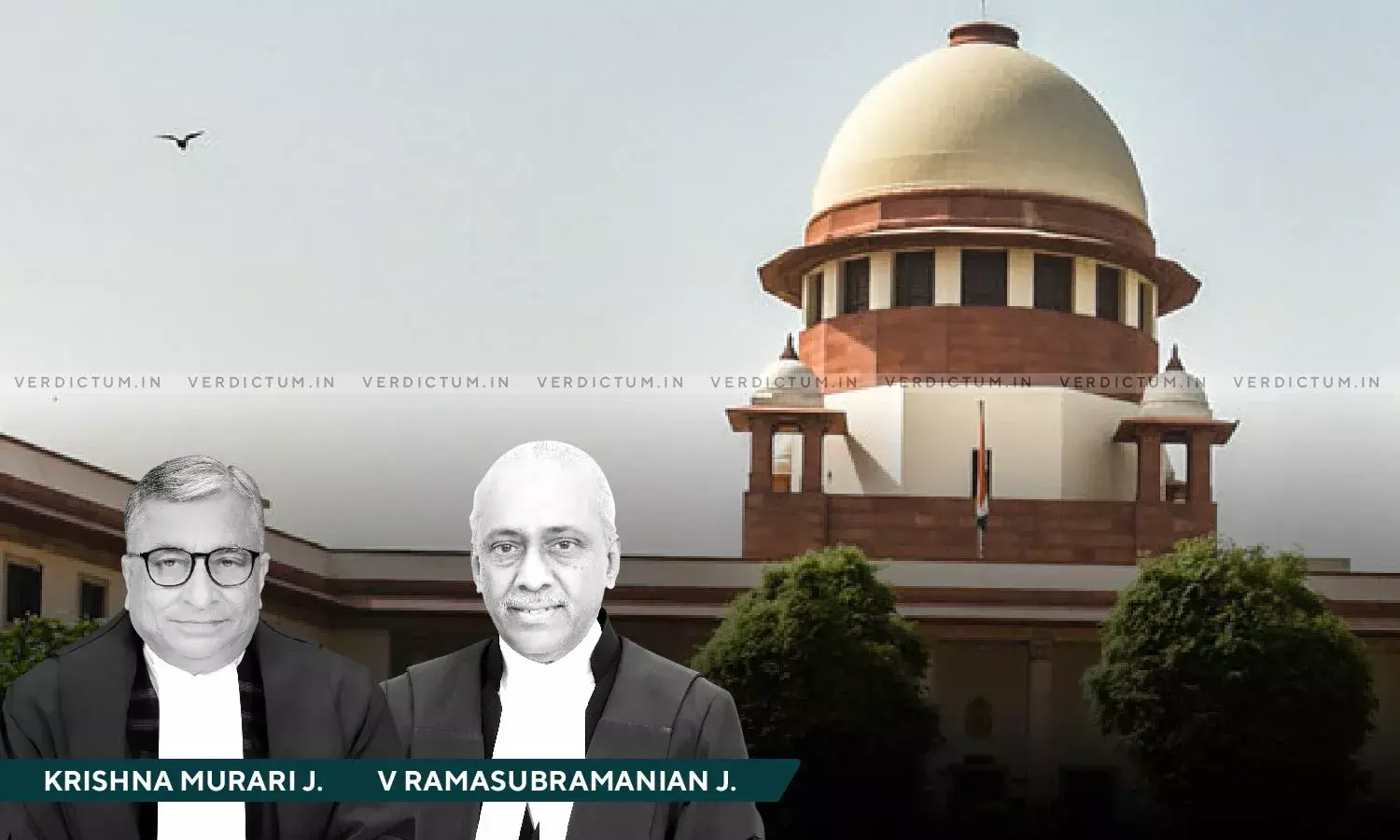Preventive Detention Laws Confer Arbitrary Power To The State, Every Lapse In Procedure Must Benefit The Case Of Detenue: SC

The Supreme Court has observed that preventive detention laws in India are a colonial legacy, and as such, are extremely powerful laws that have the ability to confer arbitrary power to the state. It added that every procedural rigidity, must be followed in entirety by the Government in cases of preventive detention, and every lapse in procedure must give rise to a benefit to the case of the detenue.
The Court set aside preventive detention order in which the grounds for detaining a person were ineligible and in Chinese and further said that every irregularity must work in favour of the detenue in such cases.
The Bench of Justice Krishna Murari and Justice V. Ramasubramanian observed that “In cases where illegible documents have been supplied to the detenue, a grave prejudice is caused to the detenue in availing his right to send a representation to the relevant authorities, because the detenue, while submitting his representation, does not have clarity on the grounds of his or her detention. In such a circumstance, the relief under Article 22(5) of the Constitution of India and the relevant statutory provisions allowing for submitting a representation are vitiated, since no man can defend himself against an unknown threat.”
Senior Advocate Vikram Chaudhri appeared for the appellant and ASG K.M. Nataraj appeared for the respondent.
In this case, the appeal was preferred against the order of the Delhi High Court whereby the appellant’s plea to quash the detention order against him on grounds of delay in considering his representation was denied.
The appellant was accused of being involved in a syndicate of Chinese, Taiwanese and South Korean nationals, along with some Indian nationals, who smuggled gold into India through air cargo by concealing gold in machines.
The Court noted that, in January, the Apex Court had released the man from custody, initially as an interim relief due to demise of his father, and then finally due to expiry of the detention order.
The Apex Court noted that the order issued under the Conservation of Foreign Exchange and Prevention of Smuggling Activities Act, (COFEPOSA) could not be quashed on account of delay as the authorities had worked as per the procedure established by law.
“The Government in the present case at hand, did decide to wait for the decision of the Advisory Board. This was also done in accordance with the decision of the Abdullah Kunhi case (supra), since the Government, being a separate authority, is bound to wait for the decision of the Advisory Board.” said the Court.
However, the Court noted that the principle of parity was applicable in the case, since another co-detenue with identical circumstances, had already been granted the relief of quashing the detention order against him.
The Apex Court expressed the necessity of ensuring procedural rigidity in the issuance of preventive detention order and said that “...preventive detention laws in India are a colonial legacy, and as such, are extremely powerful laws that have the ability to confer arbitrary power to the state.... Every procedural rigidity, must be followed in entirety by the Government in cases of preventive detention, and every lapse in procedure must give rise to a benefit to the case of the detenue. The Courts, in circumstances of preventive detention, are conferred with the duty that has been given the utmost importance by the Constitution, which is the protection of individual and civil liberties. This act of protecting civil liberties, is not just the saving of rights of individuals in person and the society at large, but is also an act of preserving our Constitutional ethos, which is a product of a series of struggles against the arbitrary power of the British state."
Accordingly, the Apex Court allowed the appeal, and said that “...while the appellant has already been released on grounds of expiry of the detention period, for the sake of clarity on the point of law, we hold that the impugned detention order is liable to be set aside.”
Cause Title- Pramod Singla v. Union Of India & Ors.
Click here to read/download the Judgment

